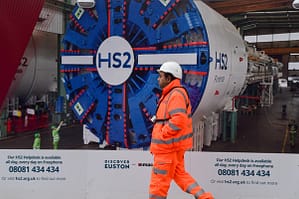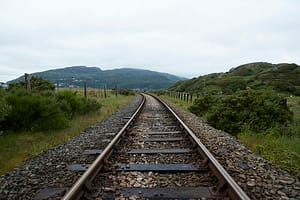If the Prime Minister were only to look at how the Elizabeth Line in London (formerly CrossRail) was funded, he could learn the lesson that Andy Burnham, Mayor of Greater Manchester, already knows.
The increase in land value that any planned infrastructure improvement will generate in the future can be used now to pay for its construction.
When Crossrail was proposed, Transport for London negotiated for large businesses around central London stations to be charged a Business Rate Supplement (BRS) to pay for building the line.
Businesses welcomed the proposal because they knew Crossrail would only grow their businesses and generate more money than what they would pay in the BRS.
Dave Wetzel, former Vice-Chair of Transport for London and founder of the Labour Land Campaign, remembers the negotiations well, he said, “The deciding factor in the then government agreeing to the building of Crossrail was the BRS—no burden on taxpayers and a levy welcomed by businesses.
“If only today’s government would understand how to fund good rail projects from the economic benefits they bring, the UK could have the most extensive and affordable public transport system in the world.”
Judicious public investment in infrastructure and services always increases local land values and this is especially true of transport developments, as evidenced with Crossrail, the Jubilee Line Extension, HS2, improved bus networks and tramway systems.
This windfall that begins as soon as such new projects are announced is created from society’s demand to locate businesses and homes along the path; but it is the happy owners of the land who harvest all this new wealth without any effort on their part.
Realising much-needed infrastructure projects does not need to cost the taxpayer anything if the resultant uplift in land value is used to pay for them.
Moreover, if the tax system were fundamentally changed to collect the unearned wealth accruing from the possession of assets like land and other natural resources, taxes on the real economy—wages, production and trade—could be reduced and a virtuous cycle could be locked in: rising land values due to improved public services and infrastructure are captured to further improve public services and infrastructure.





Leave a Comment